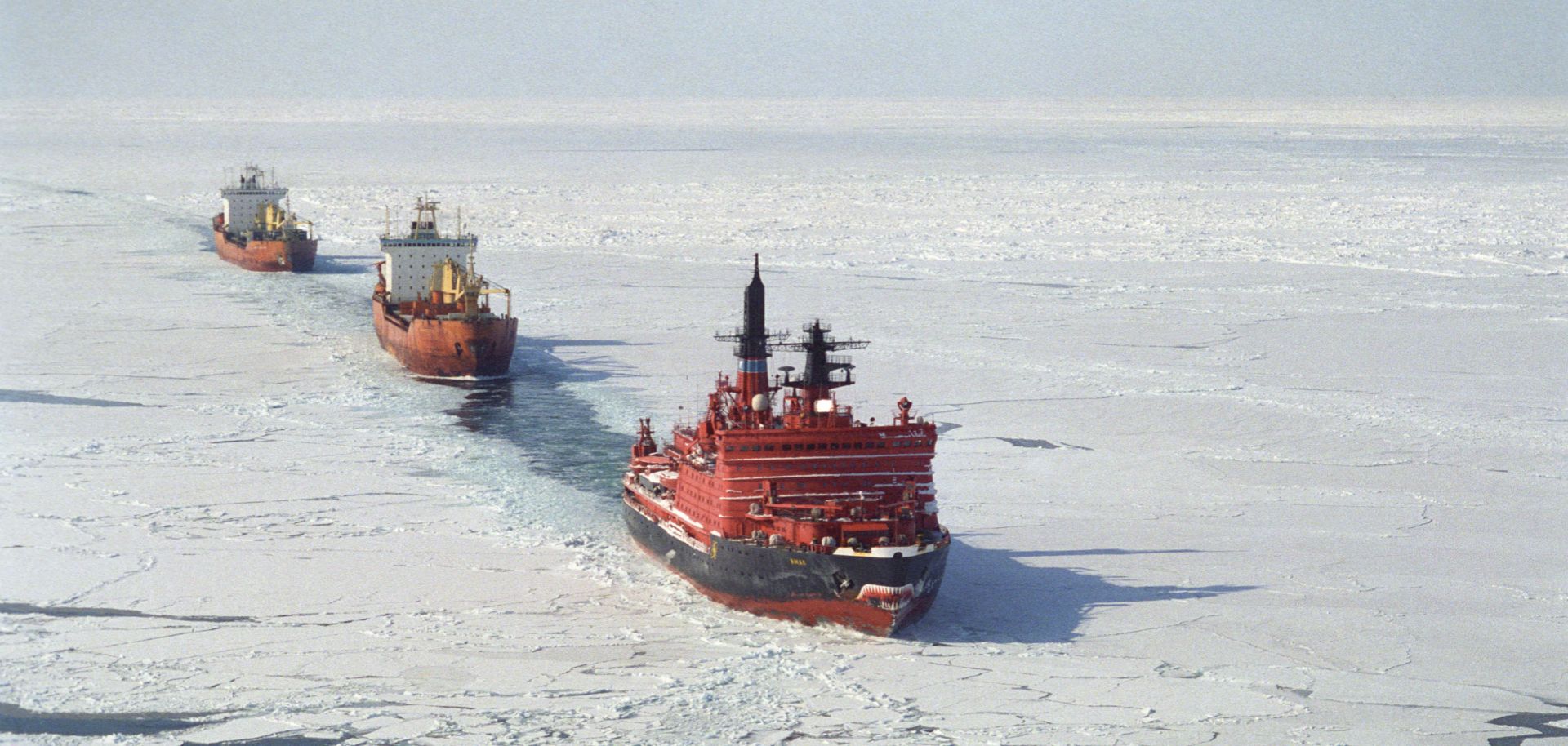COLUMNS
What Russia Stands to Gain, and Lose, From the Thawing Arctic

Aug 1, 2019 | 09:00 GMT

The Yamal, a Russian nuclear-powered icebreaker, clears the way in the Kara Sea. Among the eight countries with territory inside the Arctic Circle, Russia currently sees the greatest economic benefits from its vast, resource-rich northern regions.
(SOVFOTO/Universal Images Group via Getty Images)
Highlights
- Among the eight countries with territory inside the Arctic Circle, Russia currently sees the greatest economic benefits from its vast, resource-rich northern regions.
- In recent years, Russia has begun returning to Cold War-era levels of Arctic activity in order to seize the frozen energy reserves that the warming climate is helping bring to the surface.
- But Moscow's financial constraints, coupled with U.S. and European sanctions, will leave it dependent on China to build out the infrastructure needed to fully develop its northern frontier.
- As a result, Moscow will be placed in a complex situation in the coming years — balancing its national and economic security with its evolving relations with the United States and China.
Proceed to sign up
Register NowAlready have an account?
Sign In